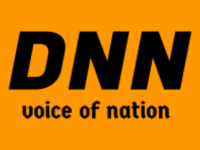US-China Relations Hitting New Lows didn’t start with covid-19
US-China Relations Hitting New Lows didn’t start with the coronavirus. They’ve been working for a considerable length of time. Relations between the US-China have sunk to new lows in the wake of the coronavirus flare-up, with the two sides planning to make political gains by accusing the other of the seriousness of the emergency.
US President Donald Trump reprimanded China for the worldwide pandemic again on Wednesday, asserting Beijing could have halted the episode, which he named as “the most noticeably terrible assault we’ve at any point had on our nation.”
Prior that day, China’s Remote Service said that the US should concentrate on fixing its issues at home and “quit spreading disinformation or deceiving the worldwide network.”
The divisions among Beijing and Washington return sometime before the viral episode in Wuhan, and they are probably not going to end when the worldwide coronavirus pandemic is managed.
Perhaps the fiercest purpose of conflict among Washington and Beijing has been a marking strategy of the Trump organization – the exchange war with China.
Sometime before he was US President, Trump said that he trusted China was exploiting the US financially, moaning about the wide exchange shortfall between the two nations.
After he won office, Trump started to turn out taxes on billions of dollars of Chinese merchandise in mid-2018 to squeeze Beijing to change the manner in which it worked with America.
Among the Trump organization requests were an expansion in US merchandise bought by China, a conclusion to the robbery of US organizations’ protected innovation, and more prominent access to China’s budgetary frameworks for global organizations.
Conflicts over Taiwan:
Under the Trump organization, Washington has moved to grasp Taiwan openly, rankling the Beijing government. In May 2019, at that point, US National Security Counselor John Bolton met with one of Taiwan’s top barrier authorities, the first gathering of its sort in quite a while.
A quarter of a year later, President Trump consented to enormous arms manage Taiwan, including many new F-16 contender planes.
At that point, Chinese Remote Service representative Hua Chunying said the US would “bear all the results” on the off chance that it continued meddling in Taiwan.
“It must be focused on that the Taiwan issue concerns China’s power, regional uprightness, and security interests,” Hua said.




